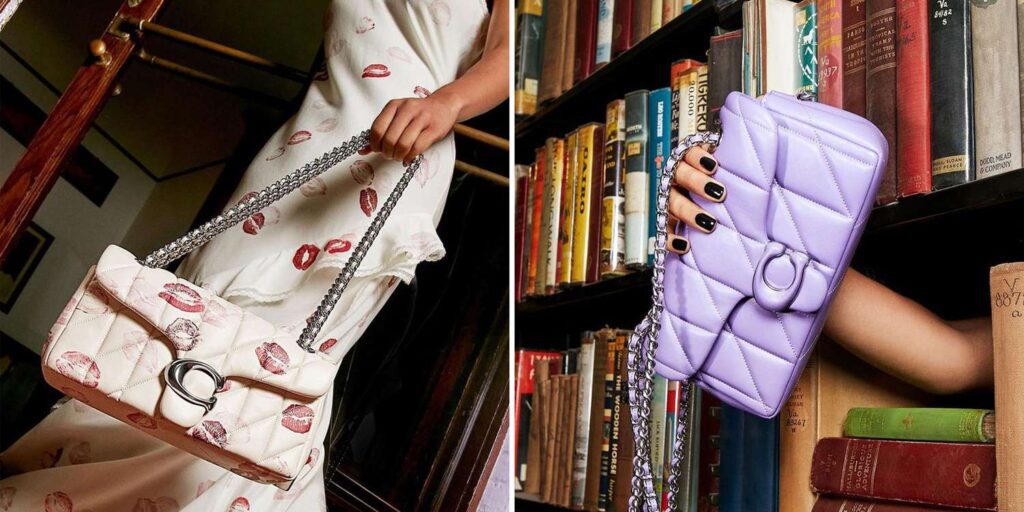The U.S. government is said to be investigating calls for an import ban on the fast fashion wares of Boohoo Group after being presented with “sufficient evidence to launch an investigation after [receiving] petitions from lawyer Duncan Jepson, who runs Liberty Shared, an anti-modern slavery organization, Reuters reported this week. In a formal complaint lodged with U.S. Customs and Border Protection (“CBP”) in February, Jepson asserted that Manchester, UK-based Boohoo is not doing enough to stop forced labor in the Leicester, England-based factories responsible for manufacturing its trendy and inexpensive garments and accessories.
15-year old Boohoo Group, which owns the marquee Boohoo brand, as well as the similarly-situated Nasty Gal and PrettyLittleThing labels, and its supple chain first made headlines in July when British publication the Sunday Times revealed that suppliers tied to the group had been engaging in rampant labor and wage abuses all in the name of lightning-fast fashion. Revelations came to light that amid the COVID-19 pandemic, garment workers in Leicester were making trendy wares destined for Boohoo – whose namesake brand introduces 100 new styles to its e-commerce site on a daily basis – in “unsafe working conditions” and being paid as little as £3.50 ($4.39) per hour to do so.
An independent audit carried out this summer in the wake of such allegations revealed that “Boohoo’s senior directors knew ‘for a fact’ that there were ‘serious issues’ with the treatment of workers in the company’s Leicester factories since at least December 2019,” according to the Guardian. Reuters subsequently reported that as of September, Boohoo had accepted “all of the recommendations of an independent review, which found major failings in its supply chain in England after newspaper allegations about working conditions and low pay, and set out steps to tackle the problems.”
Such efforts have enabled Boohoo to save face with consumers (the group’s sales in the four months ending December 31 surged by 40 percent) and investors (its stock price rebounded more than 27 percent within days of the news of the labor scandal breaking in July, thereby, enabling the company to recoup nearly £770 million in value “after almost £2 billion was wiped off in a matter of three days”). They have not, however, kept the company out of the crosshairs of the U.S. government. Although, a representative for Boohoo said this week that “the group has not received any correspondence from, nor is it aware of any investigation by, U.S. Customs and Border Protection.”
The rep noted that “over the past eight months, the group has been working closely with UK enforcement bodies,” and if it “were to discover any suggestion of modern-day slavery it would immediately disclose this to the relevant authorities.” As of Tuesday, Boohoo’s spokesman said that the company would continue to fulfil orders placed by U.S.-based consumers.
A rise in enforcement
A hypothetical import ban by the U.S. government on Boohoo-brand clothing would come as part of a larger trend in U.S. enforcement. Since 1930, when the U.S. enacted Section 307 of the Tariff Act, the importation of merchandise “mined, produced or manufactured, wholly or in part, in any foreign country by forced labor” has been prohibited by law. Even with such a broad and far-reaching prohibition in place, CBP historically “has been extremely reluctant to use its power to stop forced labor goods at the port by issuing formal detention or exclusion orders,” the International Labor Rights Forum asserted several years ago.
However, that has begun to change, with CBP taking “three high-profile actions in recent months,” alone, in order to prevent “certain products from entering the U.S. from China’s Xinjiang Uyghur Autonomous Region,” Arnold & Porter lawyers Samuel Witten, Claire Reade, and Grace Kim stated in a client advisory in June. And these recent enforcement efforts are not unprecedented. In fact, they follow from a marked increase in Section 307 actions that came after President Obama signed the bipartisan Trade Facilitation and Trade Enforcement Act (“TFTEA”) in February 2016, repealing the “consumptive demand” exception in the Tariff Act, a loophole that had previously allowed for the import of goods even if they had tied to forced labor if there was insufficient domestic production to meet internal demand.
Witten, Reade, and Kim state that between February 2016 when the TFTEA was enacted and June 2020, CBP had taken “15 enforcement actions against imports due to forced labor concerns.” That is compared to “just 39 actions against importers in the 86 years prior to the TFTEA.” In other words, CBP enforcement is on the rise.
What now?
As for what that means for Boohoo, the first step towards triggering an enforcement action under Section 307 is the filing of “a report by ‘any person’” with CBP “that merchandise produced by forced labor is being imported, or is likely to be imported, into the United States,” according to Witten, Reade, and Kim, which is reportedly what has already occurred in the instance at hand given reports that Liberty Shared lawyer Duncan Jepson filed a formal complaint with CBP last month.
In a Section 307 note updated on February 1, the Congressional Research Service stated that “upon receipt of such a report, the Commissioner of CBP is required to initiate an investigation ‘as appears warranted’ by the amount and reliability of the submitted information.” If the Commissioner finds that the information “reasonably but not conclusively indicates” that imports may be the product of forced labor, “then she or he is to issue an order to withhold release of such goods.”
Alternatively, Witten, Reade, and Kim state that “CBP may issue an official finding of cause, which would be published in the Customs Bulletin and the Federal Register, if the investigation finds probable cause that a class of merchandise is produced with the use of forced labor,” at which point an importer can challenge the CBP’s finding.
With this case in mind and given the complexity of modern apparel companies’ supply chains and the growing willingness of the CBP to take enforcement action, Witten, Reade, and Kim assert that importers need to be “alert to the potential issue of forced labor in their supply chains,” encouraging companies to perform “a supply chain audit and conduct due diligence on outside parties, including subcontractors and suppliers,” and noting that “many companies may ask suppliers to certify that there is no forced labor in their supply chain, and to issue their own policy statements on the subject.”
Beyond that, they note that company policies should also include “a strong anti-forced labor compliance program, which could include training employees responsible for importing to spot, investigate, and handle potential reports of forced labor,” and to “document these and other efforts clearly, to ensure there is a clear record of the company’s compliance in this area, and to help address inquiries by federal authorities, should any occur.”











